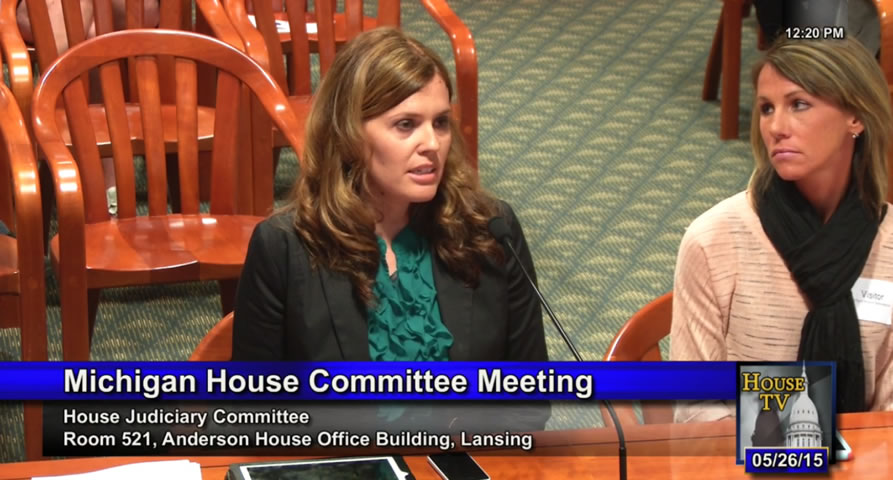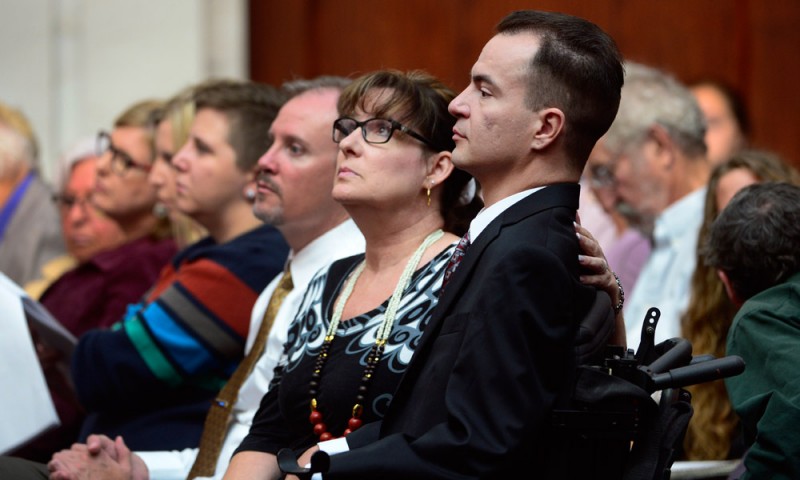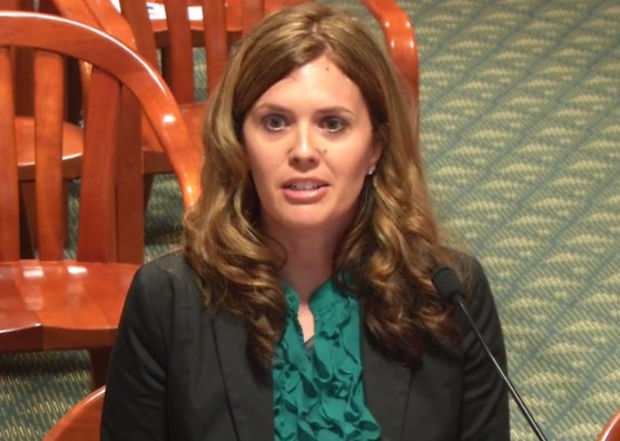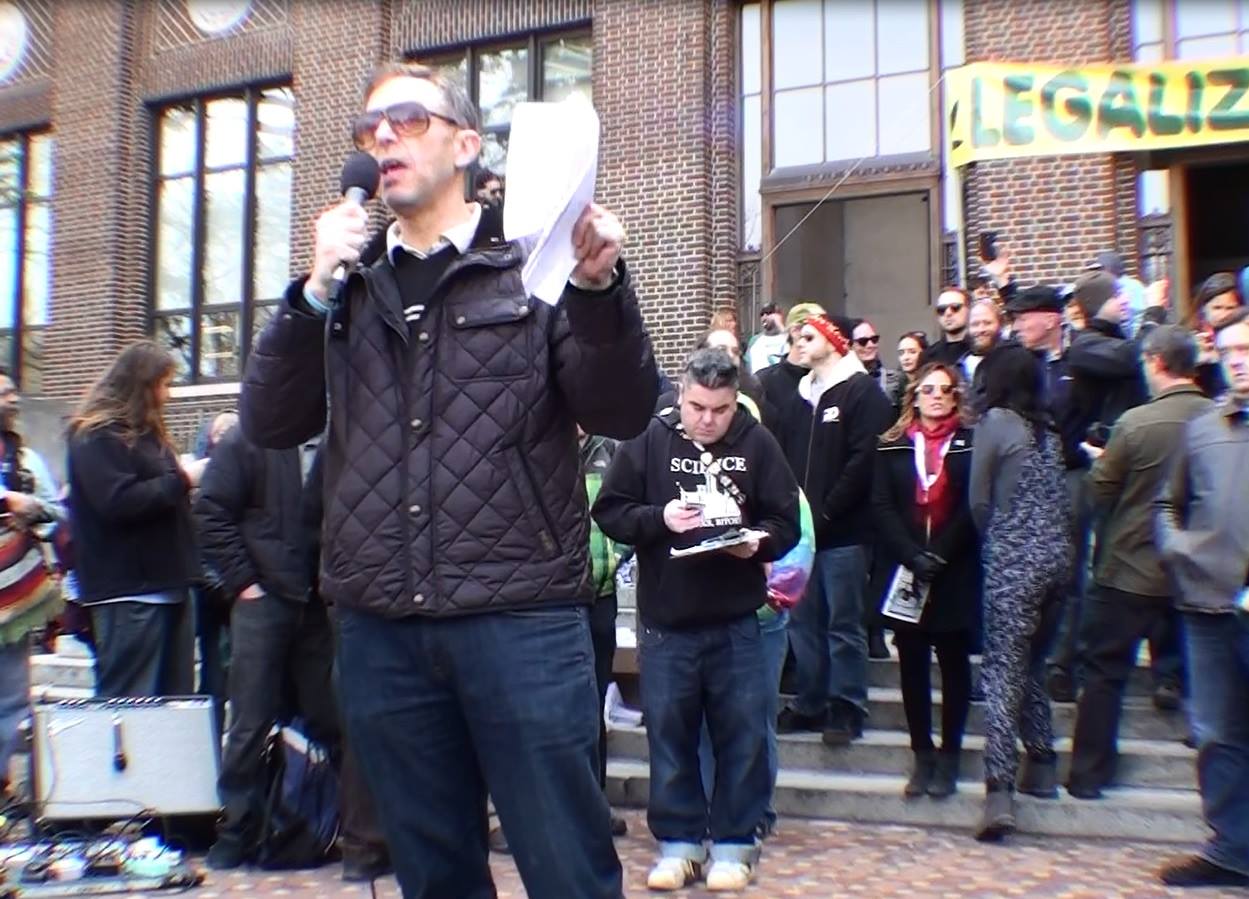
Jul 26, 2015 | Cannabis Science, Health Benefits of Marijuana, Medical Marijuana, News
A new study published in the Journal of Bone and Mineral Research has found that smoking marijuana may help to heal broken bones more quickly.
Researchers at Tel Aviv University found that rats with broken bones healed more quickly when given cannabinoid, or CBD, the non-psychotropic compound in weed, and THC.
The study, published in the Journal of Bone and Mineral Research on Thursday found that the bones not only healed quicker, but were also stronger and more resilient against a repeated fracture, meaning the bones treated with marijuana were much less likely to break again.
The scientists behind the research believe that this is due to a connection between cannabinoid receptors in the human body and the stimulation of bone growth.
Dr. Yankel Gabet of Tel Aviv’s Bone Research Laboratory presented findings that show that cannabidiol (CBD), a non-psychoactive chemical found in marijuana, may have therapeutic qualities in the mending of fractured bones. CBD can be separated from tetrahydrocannabinol (THC), the component of marijuana commonly attributed to cause the altered state produced by taking the substance.
Because of the ability of the chemical to able to have positive outcomes for the healing of broken bones, there will undoubtedly be a continued effort to prove the effectiveness of CBD. Medical marijuana has also been shown to be effective for a range of other ailments. One of the most recently discovered is a possible positive influence on Alzheimer’s disease. A study published in the Journal of Alzheimer’s Disease presented findings indicative of a use for the substance to treat the disease, previously reported Inquisitr.

Jul 25, 2015 | Cannabis Science, Health Benefits of Marijuana, Medical Marijuana, Medical Marijuana Attorney Michael Komorn, News
State officials on Monday acknowledged they’d omitted hundreds of pages of medical studies from packets supplied to a state review panel slated to consider medical marijuana for treating autism according to the Detroit Free Press.
The panel will reconvene July 31 to reconsider autism, officials said.
“I became aware several weeks ago that we hadn’t received a huge number of documents, maybe six or eight hundred pages,” said David Brogren, 61, a retired insurance agent who treats his multiple sclerosis with medical marijuana.
Brogren notifed state officials of the omission two weeks ago and was assured that the materials would be added to panel members voting packets, he said. Yet, at Monday’s hearing in a state office building in Lansing, “I brought in this thick pile of documents that they still hadn’t given to us” — he got them from the petitioner’s lawyer — “and I tossed it on the table,” said Brogren, who moved recently from Bloomfield Hills to Mason, near Lansing.
Related: Pot for kids? Some parents say it’s good medicine
Staffers of LARA — the Michigan Department of Licensing and Regulatory Affairs — called for a 15-minute recess, met with lawyers from the Michigan Attorney General’s Office, then offered to provide the missing studies if the panel postponed its hearing to July 31 at 1 p.m., panel member Robert Noiva of Rochester said.
Panel members voted 5-0 to postpone as “the only fair thing to do,” said Noiva, associate dean for medical education at Oakland University’s William Beaumont School of Medicine in Auburn Hills.
“Licensing and Regulatory Affairs provided the information we were supposed to provide and David Brogren wanted the department to provide the reference materials cited” in the petition, said LARA spokesman Michael Loepp. The Michigan Attorney General’s Office referred questions to LARA.
4/20/15
Most adults agree with legalizing medicinal marijuana, but they’re a lot more uneasy when it comes to its use for sick kids.
And most by far — 4 in 5 adults — say kids shouldn’t see adults using it.
That’s according to the latest University of Michigan C.S. Mott Children’s Hospital National Poll on Children’s Health, which routinely asks what’s on the minds of the nation’s moms and dads — from how they’re using social media to what they think of new laws and policies.
It’s not surprising that adults are hesitant when it comes to medical therapies that many believe are still unproven, said Dr. Matt Davis, director of the National Poll and professor of pediatrics and internal medicine at U-M Medical School.
“From my experience as a physician, they commonly mention the lack of testing for testing as a reason for their concern,” said Davis, who as a pediatrician at U-M is not allowed to prescribe marijuana for children.
Michigan is one of nearly two dozen states that permit medical marijuana, but it also has stricter rules when it comes to children using medical marijuana.
The Mott poll is the first to examine parents’ views about medical pot for adults compared to their view about its use for children. It drew from responses in November and December of 2,176 adults — both parents and non-parents.
Davis said responses about adult use of medical marijuana were similar to polls elsewhere, offering “reassurance” that it accurately reflects adults’ views about marijuana’s use for children too.
More specifically, the poll found:
■Nearly 2 in 3 parents say their state should allow medical marijuana for adults.
■Just more than 1 in 3 say it should be allowed for children.
■Four in 5 people say adults shouldn’t be allowed to use medical marijuana in front of children
■1 in 10 said they either have a medical marijuana card or know someone who does.
Some in the audience, including parents of autistic children, labeled the omission an intentional obstruction by the Michigan Attorney General’s Office, headed by Bill Schuette, a strong opponent of medical marijuana. Schuette’s staff lawyers initially blocked the autism petition, first filed in May 2014, in a lengthy court fight before dropping opposition in April, said Michael Komorn, a Southfield attorney who successfully argued the case in Ingham County Circuit Court.

Jun 16, 2015 | Criminal Defense Attorney Michael Komorn, Legalization, Medical Marijuana, Medical Marijuana Attorney Michael Komorn, News
The Colorado Supreme Court ruled Monday Jun 15, 2015, that Employers’ zero-tolerance drug policies trump Colorado’s medical marijuana laws.
In a 6-0 decision, the Colorado Supreme Court affirmed lower court rulings that businesses can fire employees for the use of medical marijuana even if it’s off-duty.
Colorado became the first state to provide guidance on a gray area of the law. With the ruling, which was a blow to some medical marijuana patients and a sigh of relief to employers.
The decision came nine months after the state’s highest court heard oral arguments in Brandon Coats’ case against Dish Network.
Coats was rendered a quadriplegic by a car accident He had a medical marijuana card and consumed pot off-duty to control leg spasms. He was fired in 2010 after failing a random drug test.
Coats, who was a customer service representative for Dish, challenged the Douglas County satellite TV company’s zero-tolerance drug policy, claiming that his use was legal under state law. His firing had been upheld in both trial court and the Colorado Court of Appeals.
When the case went to the state Supreme Court, legal observers said the case could have significant implications for employers across Colorado. They noted that the ruling also could be precedent-setting as Colorado and other states wrangle with adapting laws to a nascent industry that is illegal under federal law.
At the crux of the issue was whether the use of medical marijuana — which is in compliance with Colorado’s Medical Marijuana Amendment — was”lawful” under the state’s Lawful Off-Duty Activities Statute.
That term, the justices said, refers to activities lawful under both state and federal law.
“Therefore, employees who engage in an activity, such as medical marijuana use, that is permitted by state law but unlawful under federal law are not protected by the statute,” Justice Allison H. Eid wrote in the opinion.
Current Colorado law allows employers to set their own policies on drug use.
Coats’ attorney Michael Evans, of Centennial-based The Evans Group, called the decision “devastating.”
He said he does not plan to take the case to the U.S. Supreme Court.
“You need the Colorado Supreme Court to stand up for its own laws,” he said. “The U.S. Supreme Court is not going to do that.”
Read More and See Related Info Here

Jun 13, 2015 | Medical Marijuana, Medical Marijuana Attorney Michael Komorn, Michigan Medical Marijuana Criminal Defense, News, Uncategorized
A recent (6/8/15) editorial in the Livingston News visited the Michigan forfeiture laws which has become a hot topic lately.
The editorial goes on to say…
“When law enforcement agencies raid a suspected drug dealer’s home and confiscate property such as cars, money or other items, we understand this.
Police don’t want criminals to benefit from their illegal activity.
However, what happens if there is no conviction?
That property should and would be returned, one would think.
However, that’s not the case in Michigan, and we’re glad our state Legislature is working to reform civil asset forfeiture. The current forfeiture rules must be fixed because they allow police to confiscate items even if it’s determined there was no crime committed.
Michigan’s Civil Asset Forfeiture laws allow police to take property from citizens if they suspect a crime was committed, even when there is not enough evidence to charge them. Homeowners must then prove they did not purchase their property with proceeds from criminal activity and sue to get the property back.
In many cases, police raid a home where there clearly is no drug dealing happening; instead, residents are involved with medical marijuana, which voters stated is a legal use here in Michigan.
The following are a couple examples of how regular citizens were caught in the unjust web of forfeiture laws.
Gin Hency and Annette Shattuck describe themselves as soccer moms, active in their communities and in their children’s lives. Since July 2014, the St. Clair County women have shared another similarity: Both of their homes were raided by the St. Clair County Drug Task Force. Hency and Shattuck are registered medical marijuana caregivers. Among the things taken in the raid were their medical marijuana cards issued by the state, televisions, a bicycle and documents including driver’s licenses and insurance cards.
Another item reported taken was Hency’s vibrator (yes, a sex toy).
“It was devastating,” Shattuck said.
Hency and Shattuck were charged with marijuana-related counts several months after the raids. Three of the six charges against Shattuck were dismissed. Both charges against Hency were dismissed this month, but she has still been unable to reclaim her property.
Another example occurred with Thomas Williams, who was alone in November 2013 when police raided his rural St. Joseph County home wearing black masks, camouflage and holding guns at their sides. They broke down his front door with a battering ram.
“We think you’re dealing marijuana,” they told Williams, a 72-year-old, retired carpenter and cancer patient who is disabled and carries a medical marijuana card.
When he protested, they handcuffed him and left him on the living room floor as they ransacked his home, emptying drawers, rummaging through closets and surveying his grow room, where he was nourishing his 12 personal marijuana plants as allowed by law. Some had recently begun to die, so he had cloned them and had new seedlings, although they were not yet planted. That, police insisted, put him over the limit.
They did not charge Williams with a crime, though.
Instead, they took his Dodge Journey, $11,000 in cash from his home, his television, his cellphone and his shotgun — and are attempting to take his Colon Township home. And they plan to keep the proceeds, auctioning off the property and putting the cash in police coffers.
More than a year later, he is still fighting to get his belongings back and to hang on to his house.
“I want to ask them, ‘Why? Why me?’ I gave them no reason to do this to me,” said Williams, who says he also suffers from glaucoma, a damaged disc in his back, and COPD, a lung disorder. “I’m out here minding my own business, and just wanted to be left alone.”
We ask the same question: Why?
There’s no reason except that police have certain laws that allow for this type of forfeiture.
A bipartisan package of bills, approved by a House committee, would make changes including raising the standard for forfeiture to the highest in civil court, one of clear and convincing evidence rather than a preponderance of the evidence. The bills would also require detailed reports from local police to the state police on property forfeited.
It’s a good first step, and we hope to see it approved so residents don’t have to worry about property getting taken when they’re broken no crimes.
— Livingston Daily Editorial Board
Visit the Article Here

Jun 6, 2015 | Blog, Medical Marijuana, Medical Marijuana Attorney Michael Komorn, News, Uncategorized

Armed police raid home of mom-of-four with MS and accuse her of being a drug dealer even though she could legally grow it
- Ginnifer Hency is allowed drug under Michigan’s medical marijuana laws
- She suffers from multiple sclerosis and is allowed to grow and distribute
- Claims officers took daughter’s birthday money and seized family car
By Kate Pickles For Mailonline
Published: 04:55 EST, 5 June 2015 | Updated: 13:18 EST, 5 June 2015
Armed police raided a woman’s home and seized everything from a lawnmower to her daughter’s birthday money – because she was growing legal medical marijuana.
Ginnifer Hency, 56, suffers from multiple sclerosis, a disease which causes her immune system to attack and destroy healthy nerve cells, and is allowed to grown and use the drug under Michigan’s medical marijuana law.
But this did not stop officers of Michigan’s St. Clair County Drug Task Force from raiding her home and taking her children’s bicycles, her husband’s gardening equipment, TV sets, soccer gear and children’s car seats.

Raided: Ginnifer Hency, speaking at the state’s house of representatives, is allowed to grow marijuana because she suffers from MS. But that did not stop police storming her home and seizing everything from a lawnmower to her daughter’s birthday cash
After they breached my door, at gunpoint, with masks they proceeded to take every belonging in my house. And when I say every belonging, I mean every belonging,’ she said.
The officers also took credit card statements, tax returns, and the public assistance card she used to help feed her family.
Mrs Shattuck testified at the Michigan state House of Representatives, stating that officers hung her lingerie from the ceiling fans as they ransacked her home.
She is a registered medical marijuana care giver which allows her to grow a certain quantity of marijuana plants to distribute to a small number of medical marijuana patients.
‘I was fully compliant with the Michigan medical marijuana laws,’ she told the Michigan House Judiciary Committee in testimony this week. ‘I am allowed to possess and deliver.’
Police suspected she might be selling marijuana to people without a medical marijuana card – something she denies.
She initially faced six criminal charges related to marijuana possession and distribution, three of which have since been dismissed by a district court judge, according to court papers.
She will later appear in court on the remaining charges.
St. Clair County Sheriff Tim Donnellon deny her account of proceedings and claim she is trying to ‘further her cause’ of complete legalization of the drug in the state.
Her case has reignited debate over civil forfeiture and drug laws and have raised questions about whether local authorities are appropriately seizing the property of people who are never convicted of a crime.
Read more: http://www.dailymail.co.uk/news/article-3112157/Armed-police-raid-home-mom-four-MS-accuse-drug-dealer-legally-grow-it.html#ixzz3cFXG3H1O

May 2, 2015 | Komorn Law Blog, Medical Marijuana, Michigan Medical Marijuana Criminal Defense Attorney Michael Komorn, News
Attorney Michael Komorn Speaks Out at the Hash Bash 2015 Rally!
Thank you, it is truly an honor to be here today. This is a special gathering… one that I look forward to every year.
It is an exciting time in the United States, it would appear that there is great momentum amongst us…for a more rational approach to marihuana policy.
As a lawyer, may I suggest…Do not believe everything you read or see!
The MMMA – In November of 2008, Michigan voters passed the Michigan Medical Marihuana Act (mmma). A lot of people don’t realize that more Michiganders voted for the mmma than any other issue, candidate legislation or policy decision in the history of Michigan elections. 3.3 million people declared that the sick, the wounded, and the people that care for them should be taken off the battlefield of the biggest losing war in the history of the world…on the war on marihuana.
Yet, what we have seen instead is a calculated strategy to derail the voter’s intent from the institutions that are truly in control.
This has to stop!
For 6 years across the state of Michigan:
Narcotic drug task forces have become specialized investigative armies finding or creating loopholes in the protections from arrest and prosecution of patient, caregivers and even doctors.
Prosecutors across this state have strategically litigated and courts have supported denying medical marihuana patients the simple right to present a medical marihuana defense to charges alleging marihuana violations. The most clear and unambiguous paragraph in the voters initiative of 2008 specifically decreed that registered and unregistered patients shall have a medical defense to any charges involving marihuana. This decree has been ignored.
Persons have been forced to plead guilty to felonies regarding marihuana or go to trial without being able to mention medical use of marihuana.
This is wrong and has to stop!
No matter what kind of law is passed, no matter how evolved we have become, the institutions charged with enforcing and interpreting the law control the tables.
These intuitions are and should be clearly identified as the enemy of ours and this a concern that we as a community must focus upon for change.
Specifically – The problem is that it is nearly impossible to maintain rational drug policy reform, or even medical marihuana reform, and honor the will of the people when there is no reform for the arcane and mid evil forfeiture laws that currently exists.
The prosecution of persons and the criminalization of marihuana is about big money.
And this must change!
In any courtroom throughout this great state of ours the business of the day remains marihuana cases.
At least 40 percent of the courts dockets are still making up marihuana cases. It may be felony or misdemeanor charges, or probation violations for having tested positive for cannabis.
It is difficult to view cannabis as medicine, or even recreational, when so much revenue is brought into the state from those persons who use marihuana.
This must change!
Forfeiture – In 2014, the state of Michigan reported a net earning of 20 million dollars from forfeiture proceedings.
2014 was the year the media started reporting sheriff departments and other specialized agencies throughout Michigan acquiring military equipment from the department of defense. Begging the question, why do we need military equipment to police our own citizens???
The answer is obvious. We are still at war with families, people and citizens when cannabis is perceived as contraband per se. If we accept the concept that those who use marihuana are the criminals, then it follows we can incarcerate them, charge them money, and fund the police and prison industrial complexes.
The United States is the world’s leader in incarceration with 2.2 million people currently in the nation’s prisons or jails — a 500% increase over the past thirty years!
From 1980 to 2008, the number of people incarcerated in America quadrupled-from roughly 500,000 to 2.3 million people
Today, the US is 5% of the World population and has 25% of world prisoners. 1 in every 31 adults, or 3.2 percent of the population is under some form of correctional control.
Racial Disparities in Incarceration
African-Americans now constitute nearly 1 million of the total 2.3 million incarcerated population
African-Americans are incarcerated at nearly six times the rate of whites
African-American and Hispanics comprised 58% of the prison population. This is a racist policy, it exists all over the the state of Michigan and it is time for our state to call ourselves out.
We can be better!
This must change!
In 2014, the Michigan Court of Appeals in a case People v Cunningham. The way courts have been issuing costs and fines was unreasonable and dramatically reduced the way people can be charged fees and court costs.
Then the court lobby decreed that they would lose over $100 million dollars. Legislation was passed to override what the court of appeals had declared was unreasonable and reprehensible.
You may ask yourself… why does the court need to lobby?
You may ask yourself… this is not my beautiful home?
You may ask yourself… this is not my beautiful wife?
You may ask yourself… how did I get here??
This must change!
We gather here today, the first Saturday of April, to recognize the insanity of all of this.
We acknowledge the insanity that Prophet John Sinclair was sentenced to 10 years in prison for 2 stinky joints.
The Michigan Supreme Court ultimately conclude in this case,
“That there is no rational basis for cannabis to be scheduled as a schedule 1 control substance and for a short period of time cannabis was de-scheduled. “
Often overlooked in the magic of the Michigan Medical Marijuana Act is the declaration of Michigan voters, in conjunction with the federally funded National Institute of Science, that cannabis has a number of medical benefits in the treatment of debilitating conditions. By virtue of vote, cannabis was removed from its classification of a schedule 1 drug.
The Michigan voters in 2008 echoed the Michigan Supreme Court ruling from 1972, declaring the same as in the People v John Sinclair, and de-scheduled marihuana in Michigan.
Unfortunately, every criminal statute in the Michigan public health code still criminalizes cannabis as a schedule 1 drug.
Let me say that again. Despite 3.3 million Michiganders (63 percent of the voters in Michigan) declaring cannabis is medicine, it remains classified and criminalized as a schedule 1 drug.
Currently, the way in which people are prosecuted for cannabis crimes in Michigan is premised upon the drug being a schedule 1, or having no accepted medical treatment.
This must change!
At the same time, the United States’ 37 president, Richard Millhouse Nixon, while running a burglary ring out of the White House, rejected his handpicked commission after 2 years of independent research (now known as the Schafer Report) concluding that cannabis should not remain as a schedule 1 drug. At that time, The Schafer Report was the most comprehensive study regarding cannabis. After 2 years of study, research concluded that cannabis should not remain as a schedule 1 drug, and to criminalize marihuana would be the equivalent of criminalizing single parent families.
Nixon of course looked at the authors of the report and said, “didn’t you get the memo…the Blacks, the Jews, the Vietnam protesters and the Hippies use cannabis, these are the political enemies. If we criminalize cannabis we can imprison them and remove our competition.”
This is the history of cannabis. It is a racist policy. It is a policy created by a President for political reasons based upon a lie.
This policy has caused more carnage and destruction to families, more pain and suffering, and casualties than anything else in our recent history, and so it remains today.
As a policy… it is immoral, illegal and a complete failure.
This must change!
It is time in America to declare that adult responsible use of marihuana is okay. It is time for America to have an American made industry of cannabis. Thousands of Americans can attest to this fact.
It is time to start treating cannabis as other goods and services.
It should be okay for cannabis users to demand the highest quality cannabis in whatever forms they should choose to ingest. And with as little effort as necessary to acquire it.
We rally for freedom today and I am proud to be a part of this.
I will leave you with a comment. A police officer friend of mine said to me the other day,
“If you put 5 people in a room and give them a case of beer they will start a fight.
If you put the same 5 people in a room and give them a joint they will start a band.”
It is time to stop fighting and time to play some music!
Thank you!







